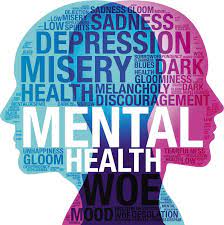Mental Health :- We’re getting a better grasp on how smell affects mood because scientists have found that the smell receptors are connected to parts of the brain that control emotions and memories.
Mental Health :- You’re right that a lot of therapies using our senses to help mental health work by changing the levels of important chemicals in the brain, like serotonin.

A new study found that smells can help improve bad feelings. Have people in the past used scents to help with mental health, or is this a new idea?
Dr. Shailesh Jha, a psychiatrist, says that for a long time, people have used aromatherapy and essential oils to make themselves feel better and reduce stress, even though there wasn’t always proof it worked.
In the early 1900s, some psychiatrists started using nice smells to help patients relax. Scientists now understand better how smells can affect our mood because the parts of our brain responsible for emotions and memories are connected to our sense of smell.
It seems that smells can make us feel happier, similar to how antidepressants work. Recent studies have shown that aromatherapy, along with antidepressants, can help treat depression. The newest research confirms that it can indeed make people with depression feel better.

What other things do people use to help with mental health, besides smells, and why?
Other ways of using our senses in mental health treatments include:
Light Therapy :-Bright light is often used to help people with seasonal affective disorder (SAD). Special lamps or visors give them regular doses of light, which can make them feel better by replacing the sunlight they’re missing. It also helps their body’s internal clock get back on track.
Auditory Stimulation :-Methods like auditory integration therapy and binaural beat stimulation use specific sounds to try to change how people feel. They might be used to help with autism, ADD/ADHD, and anxiety by affecting brain activity.
Vibration therapy :-Using machines that make you vibrate a little bit has shown some potential for helping with stress and anxiety. These vibrations stimulate nerves in your body, which might activate certain parts of your nervous system that deal with stress. However, there isn’t a lot of proof from studies yet.
Tactile Therapy :-Touch therapies such as weighted blankets, gentle pressure, and massages use the sense of touch to help improve mood, reduce anxiety, and maybe even address emotional distress. Touching can activate nerves that tell the brain to release chemicals like serotonin